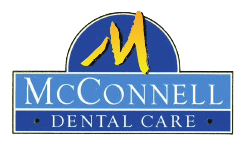The Role of Dental Crowns in Restorative Dentistry: More Than Just a Cosmetic Fix
Posted by James McConnell on Mar 7 2025, 06:35 AM
When it comes to maintaining a healthy smile, many people focus on regular brushing and flossing. However, oral health issues can arise unexpectedly, leaving you seeking effective solutions for repair and restoration. Enter dental crowns—a versatile tool in restorative dentistry that goes beyond mere aesthetics. Whether you're dealing with a cracked tooth or looking to enhance your smile after significant decay, crowns offer strength and support when you need it most. In Stansbury Park, UT, these dental wonders are becoming increasingly popular as patients discover their multiple benefits. Let’s dive deeper into the world of dental crowns and explore why they’re essential for anyone considering restorative options for their teeth.
Different Types of Dental Crowns and Their Uses
Dental crowns come in various materials, each serving unique purposes.
- Porcelain crowns mimic the appearance of natural teeth, making them ideal for front teeth restoration. They blend seamlessly with surrounding teeth and provide an aesthetic solution while maintaining strength.
- Metal crowns are another option, known for their durability. Made from alloys like gold or nickel-chromium, they withstand heavy chewing forces. Dentists often recommend these for molars that require extra support without worrying about visibility.
- Ceramic crowns offer a balance between strength and appearance. They're less porous than porcelain and resist staining while still providing a more natural look than metal options.
- Resin crowns are typically used as temporary solutions during longer treatment processes but can also serve permanent roles in certain situations due to affordability.
Each type plays a vital role in restorative dentistry based on individual patient needs and preferences.
The Process of Getting a Dental Crown
Getting a dental crown typically involves two visits to your dentist. The first appointment focuses on preparation.
During this visit, the dentist examines your tooth and takes X-rays to assess its condition. If there’s decay or damage, they might need to treat that first. Once ready, the tooth is shaped to make room for the crown.
Next comes impressions of your teeth. These are crucial for creating a custom-fitted crown that matches your bite perfectly. Your dentist may place a temporary crown while you wait for the permanent one.
In about two weeks, you'll return for installation. The temporary will be replaced with the final crown after checking its fit and appearance. Adhesive secures it in place, ensuring strength and durability.
You’ll leave with a restored smile and improved functionality! Regular check-ups can help maintain it long-term.
Benefits of Dental Crowns Beyond Aesthetics
- Dental crowns offer a wealth of benefits that extend far beyond mere appearance. These sturdy restorations play a pivotal role in preserving tooth structure. When decay or damage occurs, crowns help maintain the integrity of the remaining tooth.
- They also provide strength and durability to weakened teeth. After root canals or extensive fillings, a crown can restore functionality, allowing for normal biting and chewing without fear of further damage.
- Additionally, dental crowns can alleviate pain caused by sensitive teeth. By covering exposed areas, they shield against temperature changes and pressure.
- Another key advantage is their ability to correct misalignments. Crowns can improve the bite relationship between upper and lower teeth, enhancing overall oral health.
- Investing in dental crowns means investing in long-term protection and comfort for your smile—far more than just cosmetic enhancement! Contact us to learn more.
Alternatives to Dental Crowns
When dental crowns aren't the right fit for your needs, there are several alternatives to consider. One popular option is a dental filling. Fillings can effectively restore small cavities and damaged areas without covering the entire tooth.
Another choice is an onlay or inlay, which provides additional support while preserving more of the natural tooth structure. These options are ideal for moderate decay, where only part of the tooth requires restoration.
For those with severe damage, a root canal may be necessary before considering any restorative work. This procedure removes infected pulp and allows you to save your natural tooth.
Dentures or bridges could also serve as viable solutions when multiple teeth require replacement. Each alternative has its pros and cons, making it essential to consult with a dental professional about which approach best suits your situation in Stansbury Park, UT.
Conclusion: The Importance of Considering Dental Crowns in Restorative Dentistry
When it comes to restorative dentistry, dental crowns play a crucial role beyond mere aesthetics. They are essential for protecting damaged teeth and restoring function. If you have a weakened or decayed tooth, consider how crowns can help maintain your oral health.
Crowns in Stansbury Park, UT, offer various materials and designs tailored to individual needs. This versatility means that whether you're dealing with severe wear or an unsightly chip, there’s likely a crown option that fits perfectly.
Moreover, the benefits extend well beyond looks. They provide stability and support to existing teeth while enhancing your bite's efficiency. Many patients report improved confidence after receiving crowns; they feel more comfortable smiling and engaging socially.
Before opting for any treatment, it's wise to discuss all available options with your dentist. While crowns are highly effective solutions for many issues, alternatives exist depending on severity and personal preferences.
Choosing dental crowns is not merely about fixing what’s visible; it's about preserving long-term health and functionality in your mouth. When you prioritize this aspect of restorative dentistry, you invest in both beauty and durability for years to come.
To schedule an appointment with us today at McConnell Dental Care, located at 263 Country Club Dr #102, Stansbury Park, UT 84074. For bookings and consultations, call (435) 249-0482. Please visit our official website today to learn more about our various services.



